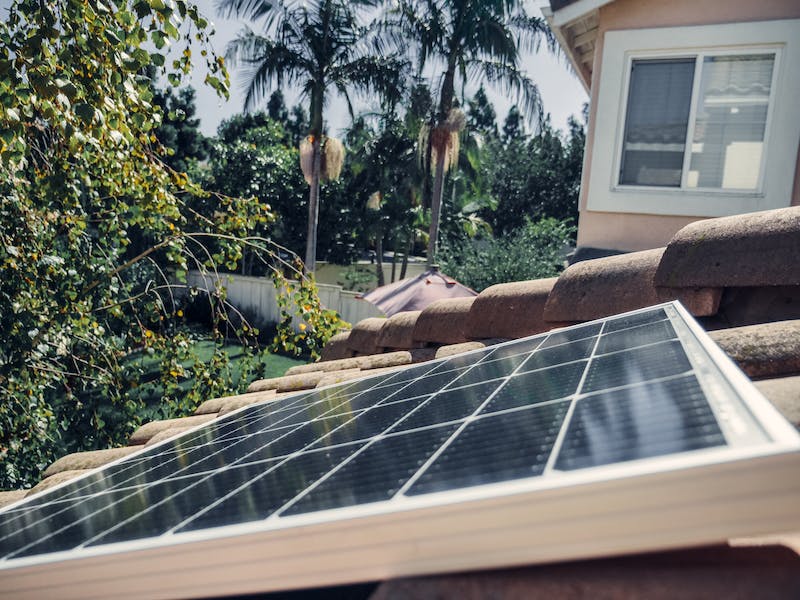Investing in a Solar Power Meter: The Key to Efficient Solar Energy Management

Have you ever wondered how much power your solar panels are producing, and if you’re making the most out of that bright, shining star we orbit? Enter the realm of the solar power meter, a device that might seem small but plays a huge role in sustainable energy management.
We promise that this blog post will help you understand solar power meters better by showing you how to choose, install, and take care of one. By the end, you’ll not only know why it’s important but also how using this tool can help you save money and energy.
Understanding Solar Power Meters
Before we can use solar energy systems to their full sustainable potential, we need to know what solar power meters are for. A solar radiometer is one kind of solar power meter.
It checks solar insolation, which is the amount of sun energy that hits a certain area of land over a certain amount of time. It tells you how well solar panels work and how to get the most out of them by measuring how much energy the sun gives off.
Purpose and Use in Solar Energy Systems
People who are interested in how well their solar panels work can use solar power meters to see how much power is being used. To put your solar panels in the best place, use these readings to find places where your current setup is wasting energy. They also help you keep your system in good shape so that it works well and saves you money on your utility bills.
Types of Solar Power Meters
There are various types of solar power meters tailored to different purposes. They can be classified as pyranometers for measuring global solar radiation, pyrheliometers for direct solar radiation measurements, and solarimeters for diffuse solar radiation monitoring. Each type serves a specific function in a solar energy system, with some offering multi-spectral measurements and advanced features tailored for professional solar projects.
Benefits of Using Solar Power Meters
There are many strong reasons to use solar power meters as part of your energy management plan. Find out everything you need to know about how to use these solar gadgets to your advantage.
Real-Time Monitoring of Energy Production
You can always check your solar power meter to see how much power your panels are making. You can use this data to see how well your system is working and how it changes throughout the day and year. It can also help you plan how much energy you use so that you use less fossil fuels and the grid.
Identifying System Inefficiencies
If the amount of energy produced drops, a solar power meter can find it. This could mean that there is a problem with the batteries, inverters, or solar panels. These wastes can be fixed right away to stop losses and keep the system running if you find them as soon as possible.
Maximizing Energy Output
You can look at the data again after some time to find the top spot and angle for your solar panels to get the most sun. You can change your system if the weather or amount of shade changes, and these kinds of plans will help you get the most out of solar energy.
Ensuring Optimal Performance and Savings
Solar power meters help you make sure that your investment in renewable energy is working at its best. Taking good care of your solar system will not only lower your carbon footprint but also save you a lot of money over the life of the installation.
Factors to Consider When Choosing a Solar Power Meter
When choosing a solar power meter, you should think about how accurate you need it to be, how often you want to check on it, and the size of your panel system. Read these things to help you make a choice that fits your needs and makes the most of the system.
Accuracy and Precision
When it comes to measuring energy output, accuracy is non-negotiable. Look for a solar power meter with a high degree of precision that can give reliable readings even in fluctuating conditions. Investing in a quality device from a reputable manufacturer like Medford’s trusted solar installer will ensure that your meter can be trusted with your critical energy data.
Compatibility with Existing Systems
Your solar power meter should be able to connect to monitoring software or hardware that you already have, as well as the solar energy equipment you already have. It saves time and money to check for compatibility instead of integrating systems.
Data Logging Capabilities
Your solar power meter should be able to log data over time, allowing you to review historical performance and trends to make informed adjustments. Some advanced models can even store months or years’ worth of data, providing a comprehensive view of your system’s energy production history.
Cost-Effectiveness
Of course, cost is a consideration, and a solar power meter should be viewed as an investment that pays off in improved energy efficiency and savings. Opt for a device that offers the features you need without unnecessary bells and whistles that can inflate the price.
Installation and Maintenance Tips
Proper installation and regular maintenance are essential for getting the most out of your solar power meter. Here are some guidelines to ensure its longevity and accurate performance.
Proper Placement for Accurate Readings
The accuracy of your solar power meter hinges on correct placement. It should be installed in an area that receives unobstructed sunlight throughout the day and is at the same height and angle as your solar panels for comparative measurements.
Regular Calibration and Upkeep
Solar power meters can drift over time, leading to inaccurate readings. Calibrate your meter as per the manufacturer’s recommendations, and perform regular checks to maintain its accuracy. Keep the device clean to prevent dust or debris from interfering with the sensor’s operation.
Harnessing the Sun - Maximizing Your Return with a Solar Power Meter
In conclusion, a solar power meter is more than a piece of equipment; it’s an essential companion for anyone serious about maximizing their solar energy system’s efficiency. By ensuring precise measurements, identifying inefficiencies, and enabling optimal adjustments, it plays a pivotal role in sustainable energy management.
Whether you’re a homeowner, a business, or an enthusiast looking to reduce your carbon footprint and energy costs, incorporating a solar power meter into your solar setup is a smart step towards a brighter, greener future.
Want to learn more? Don’t forget to explore our other articles before you leave!




